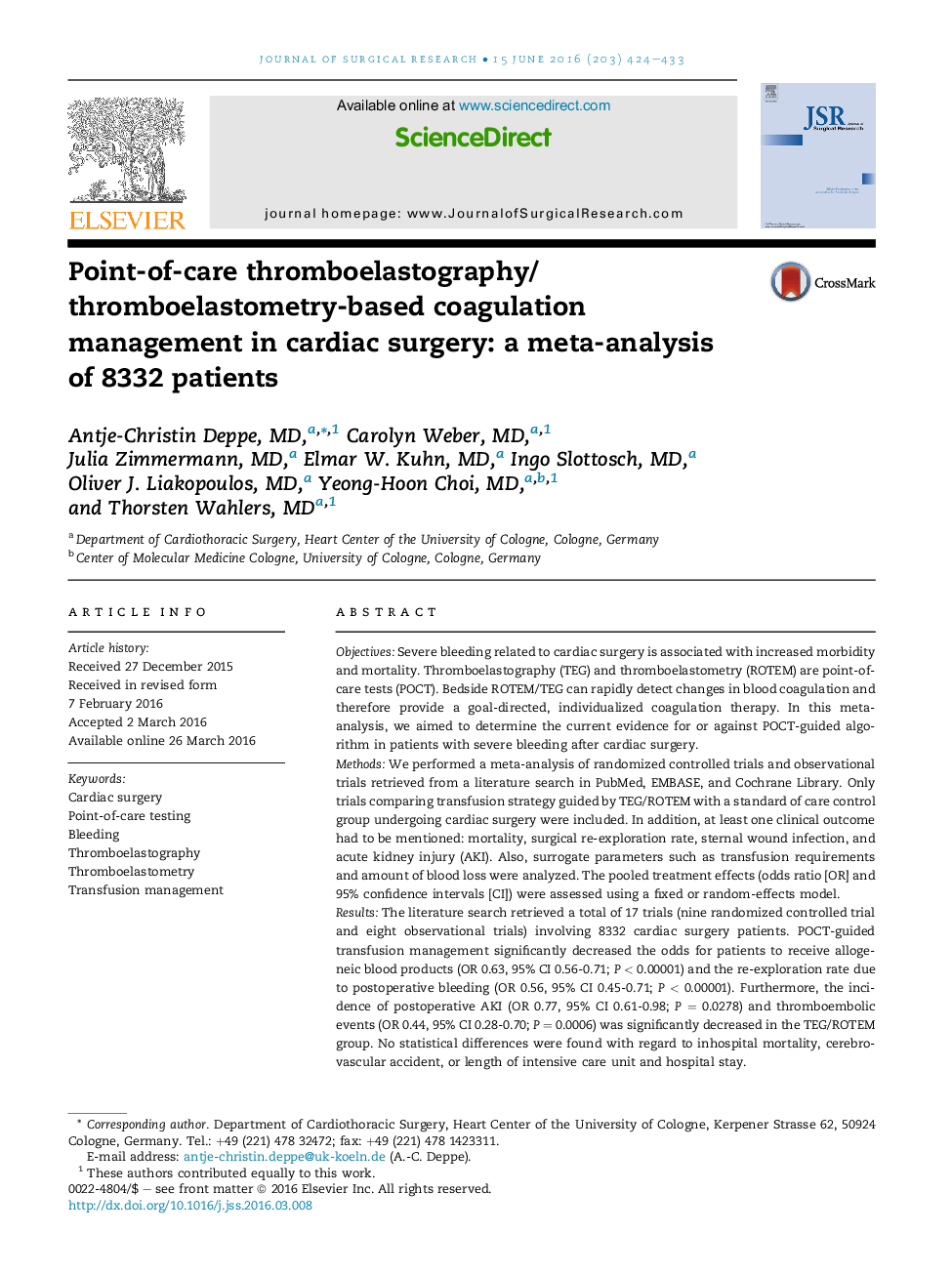| Article ID | Journal | Published Year | Pages | File Type |
|---|---|---|---|---|
| 4299260 | Journal of Surgical Research | 2016 | 10 Pages |
ObjectivesSevere bleeding related to cardiac surgery is associated with increased morbidity and mortality. Thromboelastography (TEG) and thromboelastometry (ROTEM) are point-of-care tests (POCT). Bedside ROTEM/TEG can rapidly detect changes in blood coagulation and therefore provide a goal-directed, individualized coagulation therapy. In this meta-analysis, we aimed to determine the current evidence for or against POCT-guided algorithm in patients with severe bleeding after cardiac surgery.MethodsWe performed a meta-analysis of randomized controlled trials and observational trials retrieved from a literature search in PubMed, EMBASE, and Cochrane Library. Only trials comparing transfusion strategy guided by TEG/ROTEM with a standard of care control group undergoing cardiac surgery were included. In addition, at least one clinical outcome had to be mentioned: mortality, surgical re-exploration rate, sternal wound infection, and acute kidney injury (AKI). Also, surrogate parameters such as transfusion requirements and amount of blood loss were analyzed. The pooled treatment effects (odds ratio [OR] and 95% confidence intervals [CI]) were assessed using a fixed or random-effects model.ResultsThe literature search retrieved a total of 17 trials (nine randomized controlled trial and eight observational trials) involving 8332 cardiac surgery patients. POCT-guided transfusion management significantly decreased the odds for patients to receive allogeneic blood products (OR 0.63, 95% CI 0.56-0.71; P < 0.00001) and the re-exploration rate due to postoperative bleeding (OR 0.56, 95% CI 0.45-0.71; P < 0.00001). Furthermore, the incidence of postoperative AKI (OR 0.77, 95% CI 0.61-0.98; P = 0.0278) and thromboembolic events (OR 0.44, 95% CI 0.28-0.70; P = 0.0006) was significantly decreased in the TEG/ROTEM group. No statistical differences were found with regard to inhospital mortality, cerebrovascular accident, or length of intensive care unit and hospital stay.ConclusionsTEG/ROTEM-based coagulation management decreases the risk of allogeneic blood product exposure after cardiac surgery. Furthermore, it results in significantly lower re-exploration rate, decreased incidence of postoperative AKI, and thromboembolic events in cardiac surgery patients. Results of this meta-analysis indicate that POCT-guided transfusion therapy is superior to the current standard of care.
